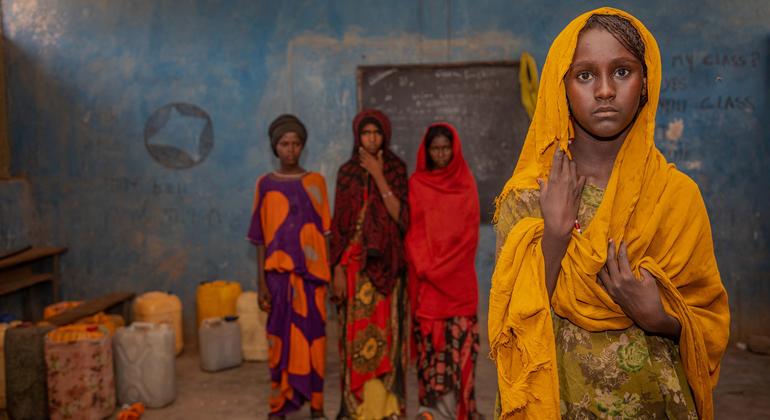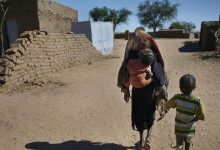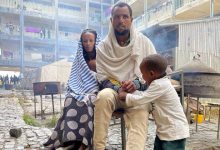Geneva Conference Chips in $630 Million for Ethiopia’s Vital Aid
 Ethiopia’s international partners convened in Geneva on Tuesday to address the urgent need for increased humanitarian funding for the crisis-hit country, pledging a total of almost $630 million.
Ethiopia’s international partners convened in Geneva on Tuesday to address the urgent need for increased humanitarian funding for the crisis-hit country, pledging a total of almost $630 million.
The UN-backed $3.24 billion humanitarian response plan for 2024 is only five per cent funded.
Organised by the UN along with the Governments of Ethiopia and the United Kingdom, the conference aims to hear commitments that will enhance life-saving aid to approximately 15.5 million people in 2024. An immediate funding of $1 billion is required to sustain aid delivery for the next five months.
Tweet URL
The crisis has escalated due to recurring cycles of droughts, floods, and conflict. Food insecurity and malnutrition are anticipated to affect 10.8 million people during the lean season from July to September.
A multi-factor crisis
Around 4.5 million people have been displaced from their homes, raising concerns about public health and protection services. The El Niño phenomenon has worsened drought conditions in the northern highlands, leading to decreased water availability, parched pastures, and reduced harvests.
Malnutrition rates in many areas including Afar, Amhara, and Tigray continue to worsen, highlighting the critical need for funding.
“Conflicts have destroyed thousands of schools, health facilities, water systems and other community infrastructure. And that adds to the difficulty,” said Ramiz Alakbarov, UN’s Assistant Secretary-General and Humanitarian Coordinator in Ethiopia, adding that security and safety of humanitarian workers is still an issue in “many parts of Ethiopia”.
The Ethiopian government has recently endorsed a new national policy for disaster risk management and committed $250 million for food support in the coming months. Additionally, regional governments and the country’s private sector have allocated further domestic resources for emergency response.
Strength in numbers
UN Assistant Secretary-General for Humanitarian Affairs, Joyce Msuya, closed the event with an Amharic proverb that translates as “when spider webs unite, they can tie up a lion”.
“It suggests that when people come together, as we have done this afternoon, we can accomplish formidable tasks and overcome great challenges”, she added.
She praised the 21 cash pledges led by the United States which promised $253 million, and the UK with $125 million, saying it showed “the power of unity and collective effort in achieving shared goals” on behalf of the Ethiopian people.
WHO ‘cannot continue’ work without cash injection
Speaking for the World Health Organization (WHO) Dr. Mike Ryan told the conference a cholera outbreak was now in its 20th month with over 41,000 cases, and malaria cases are already over 1.1 million for the year.
These outbreaks are occurring where millions of people lack access to essential health services with drought and flooding make the situation even worse.
“WHO and our health partners are on the ground, providing life-saving health services”, he said, adding that “without urgent funding we cannot continue.
“So far this year, we have received only four per cent of the $187 million needed to keep operations going.”
Nora Chambers, an acclaimed journalist with a focus on global affairs and humanitarian issues, has dedicated over twenty years to reporting from conflict zones worldwide. Her work has spotlighted marginalized communities and highlighted urgent international concerns.




How will the $630 million pledged in the Geneva conference specifically help address the food insecurity and malnutrition affecting millions of people in Ethiopia amidst the recurring crises of droughts and conflict?
Hi EmilySmith, the $630 million pledged in the Geneva conference will play a crucial role in providing immediate assistance such as food aid, nutritional support, and healthcare services to those affected by food insecurity and malnutrition in Ethiopia. This funding will help ensure continuity of relief efforts and aid delivery, especially during the upcoming lean season from July to September. Additionally, the funds will contribute to resilience-building programs to help communities better withstand future crises. Overall, the financial support will significantly alleviate the impact of the ongoing humanitarian crisis in Ethiopia.
As a humanitarian aid worker who has worked in similar crisis situations, it’s heartwarming to see the commitment of the international community in supporting Ethiopia. The pledged $630 million is a crucial step in addressing the urgent needs of the millions affected by the crisis. However, the funding gap of $2.24 billion highlights the ongoing challenges in delivering life-saving aid effectively. We must continue to advocate for increased support to prevent further suffering and loss of life.
In my opinion, it is crucial for the international community to continue supporting Ethiopia during this humanitarian crisis. The pledged funding of $630 million is a step in the right direction, but more immediate aid is needed to address the escalating food insecurity and displacement affecting millions of people.
It’s heartwarming to see the generous pledges made at the Geneva conference to support Ethiopia. The international community must continue to step up and provide the necessary aid to alleviate the suffering of millions affected by the crisis.
It’s heartbreaking to see the escalating crisis in Ethiopia. The international community needs to step up and provide the necessary support to save lives. The pledges made at the Geneva conference are a good start, but more needs to be done to address the immediate needs of the 15.5 million people affected. Let’s hope the funding gap can be quickly closed to prevent further suffering.
It’s heartening to see the international community coming together to support Ethiopia during this crisis. The funding pledged is a crucial step towards providing life-saving aid to those in need. Let’s hope that more support continues to pour in to address the urgent challenges faced by millions of people in Ethiopia.
It’s heartening to see the international community coming together to provide vital aid for Ethiopia. The pledged amount of $630 million is a step in the right direction, but more needs to be done to address the ongoing crisis and ensure no one is left behind. Immediate action is crucial to prevent further suffering and loss of lives.
How can we ensure that the pledged $630 million will reach those most in need in Ethiopia amidst the ongoing crisis? What specific measures are being taken to address the challenges of aid delivery and distribution?
Ensuring that the pledged $630 million reaches those most in need in Ethiopia during the ongoing crisis is crucial. Specific measures are being implemented to address the challenges of aid delivery and distribution, including working closely with local partners, utilizing technology for efficient tracking and monitoring, and establishing transparent accountability mechanisms to track the flow of funds. The focus is on reaching the affected communities promptly and effectively to provide the necessary support.
As a humanitarian aid worker, I commend the efforts of the Geneva Conference in raising $630 million for Ethiopia. This funding is crucial to provide life-saving assistance to the millions of people affected by the crisis. It is essential that the international community continues to support Ethiopia to ensure that aid reaches those in need. The $1 billion immediate funding requirement must be met to sustain relief efforts over the coming months.